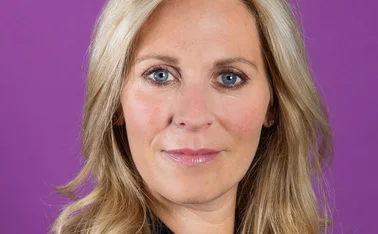
News analysis: Post FCA Covid-19 test case how are brokers finding the BI market?

Business interruption was put in the spotlight during Covid-19, as insurers insisted that the pandemic was not covered in policies, Insurance Age looks at how BI has changed since then.
Last year, Branko Bjelobaba stated that insurers were turning down business interruption claims as they “are not covered as there was never an intention to cover a pandemic”.
This in turn left brokers in the dark on what to do as they came to the realisation that some clients had policies that in their eyes were ultimately worthless.
In response to this, the Financial Conduct Authority launched a test case, which resulted in favour for the majority of policyholders in the Supreme Court.
By way of an update the regulator this week reported that insurers were quickly making interim payments, reallocating resources swiftly and proactively communicating with policyholders in its review of business interruption claims handling.
However, it also flagged concerns over how firms handled claims from vulnerable customers, record-keeping of policy wordings, and identifying where customers experienced unnecessary delays
So, what has been the experiences of insurance brokers since last year?
Stricter policies
Executive director at James Hallam, John Dougherty, stated that the “mistakes” learnt by the insurers will mean policies are more likely to be stricter, so if the incident is repeated it will not be an insurable event.
He continued: “Quite simply, insurers have tightened their policy wordings to remove any possibility of covering a pandemic, as well as reducing their overall exposure by limiting cover they are prepared to underwrite.”
Executive chairman of Verlingue, Neil Campling, claimed that the pandemic was too big for the insurance market alone to cope with, hence why insurers decided Covid-19 related claims were not going to be covered.
Campling urged: “Governments need to be involved, perhaps on the lines of [terrorism reinsurance vehicle] Pool Re?”
Steering group
A Pandemic Re steering group was created to come up with possible insurance solutions to the problems that might come to the fore if another virus hit, including how to better respond to future events.
The organisation said it would closely work with Pool Re, however a Freedom of Information request by Insurance Age in August this year revealed that HM Treasury only held three meetings with the Pandemic Re steering group since the onset of the pandemic.
On top of this, two out of three meetings lasted 30 minutes and messages from the insurance sector claimed that Pandemic Re was simply a PR gimmick.
Due to the unsettled results during the pandemic, Campling commented that the future of BI will be “complicated”. He added that cover extensions have become more of a consideration for brokers and that as a result it is no longer a simple case of “one size fits all” for clients.
Absence
Executive director of the British Insurance Brokers’ Association, Graeme Trudgill added: “The absence of any cover for a pandemic under most traditional business interruption policies makes finding a shared solution even more pressing.
“A blueprint is Pool Re, which was created to provide a pooling solution to enable the UK insurance market to underwrite terrorism risk on commercial property.”
Trudgill echoed Campling and stated that he is keen for the government to reflect on new and significant threats beyond terrorism that require collaboration to combat [underinsurance] in the future.
He added: “A shared pooling solution for terrorism and pandemic risks, backed by the government, deserves full consideration.”
Post-Covid
The pandemic, according to Trudgill forced many businesses to rethink how they operate in a post-Covid world.
He said that insurers need to clarify the wording of their policies and to check that other aspects of cover have not been withdrawn at the same time.
“For example, does some denial of access cover still remain? Does cover operate if businesses are forced to close because of diseases other than covid-19?” Trudgill asked.
He insisted that there is still appetite for innovation in BI products.
According to research quoted by Trudgill, 75% of SMEs are interested in buying set amounts of BI cover delivered via a parametric triggered policy should a future lockdown be declared.
Dougherty suggested that post-Covid, clients will be more focused on their expenditure now and in the future. He believes that with a risk management approach lower indemnity limits can be achieved, but that insurers will continue to minimise or reduce their exposure, which could lead to policy limits applying rather than on a full gross profit basis.
Dougherty added the role of broker, without a doubt, will play an integral role over the survival of businesses, as insurers start to limit BI policies.
Excluded
Clear Insurance’s claims director Neil Grimes stated that in reality there will not be any cover for this sort of [pandemic] event [in the future]. Insurers will purposefully exclude it in their policies.
If there was the potential for insurers to write pandemic cover, according to Grimes, the restrictions would be “intense”.
In a post pandemic world, he suggested that insures will focus on the government’s High consequence infectious diseases guidance and monitor what is included on the diseases list.
A focus on the government’s HCID, Grimes suggested, is so certain insurers do not repeat the same mistake of badly worded policies.
He added: “It was shocking how there was no consistency across all the different insurer policy wordings. Now, there will be a focus on how they write their [BI] policies because they have shareholders to think about, they won’t want mistakes to be replicated.”
Work
Trudgill stressed that Biba “have worked with the Chartered Insurance Institute on its transparency forum to help look at making wordings more digestible for clients.”
He also added that the Biba Property Committee believes there is a bigger discussion to be had about the language around BI insurance as well as other emerging issues.
“The committee will engage with the market, not just to see what we have learned about BI in the last couple of years, but what the next innovations and developments should be,” Trudgill claimed.
Default period
One innovation, Trudgill listed, which could help was the indemnity period being extended to 24-months as standard.
He said: “We believe that there is good availability in the market to cover extended indemnity periods, but some work may be needed to ensure e-traded policies with fixed limits are flexible in relation to the period needed by the customer. We would like to see the e-traded route including options for customers to have longer periods if they wish.”
However, Dougherty said when you look at “package” type business, the BI indemnity period is often already defaulted to 24-months.
“Although, this already comes with a set sum (which may be insufficient). There is no such thought when it comes to “commercial combined” due to the calculation and thought process needed to consider this,” he added.
Dougherty stressed that a 12-month period would disappear quickly and that it needs to be set appropriately to allow the business to recover. Which he thought could be more that three years.
Minimum
Campling suggested that the default period depends on the business, and that you cannot define a default period as it can vary.
He added: “For some 12 months could be okay but for others definitely not. I am not sure what the period should be.”
On the other hand, Grimes strongly believed that the default period should be the minimum of 24-months.
He commented: “We are currently seeing a labour shortage. So all these things take a lot longer, that it will definitely go beyond 12 months. Given the climate that we are in, 24 months should be the limit.”
What should the insurance industry do to improve BI?
Executive director of Biba, Graeme Trudgill: “Simplification has to be an important goal.
“The FCA test case illustrated that the coverage is considered complex by some customers and difficult for some SMEs to understand. The policies can contain many options and extensions such as, sub-limits, variable indemnity periods, non-damage BI, which mean products are flexible but have different claims triggers.
“Pending a wholesale change in approach based on customer expectation, we will continue work with members to help them make what is covered clearer to customers.”
For all the latest industry news direct to your inbox, sign up for our daily newsletter.
Only users who have a paid subscription or are part of a corporate subscription are able to print or copy content.
To access these options, along with all other subscription benefits, please contact info@insuranceage.co.uk or view our subscription options here: https://subscriptions.insuranceage.co.uk/subscribe
You are currently unable to print this content. Please contact info@insuranceage.co.uk to find out more.
You are currently unable to copy this content. Please contact info@insuranceage.co.uk to find out more.
Copyright Infopro Digital Limited. All rights reserved.
As outlined in our terms and conditions, https://www.infopro-digital.com/terms-and-conditions/subscriptions/ (point 2.4), printing is limited to a single copy.
If you would like to purchase additional rights please email info@insuranceage.co.uk
Copyright Infopro Digital Limited. All rights reserved.
You may share this content using our article tools. As outlined in our terms and conditions, https://www.infopro-digital.com/terms-and-conditions/subscriptions/ (clause 2.4), an Authorised User may only make one copy of the materials for their own personal use. You must also comply with the restrictions in clause 2.5.
If you would like to purchase additional rights please email info@insuranceage.co.uk







